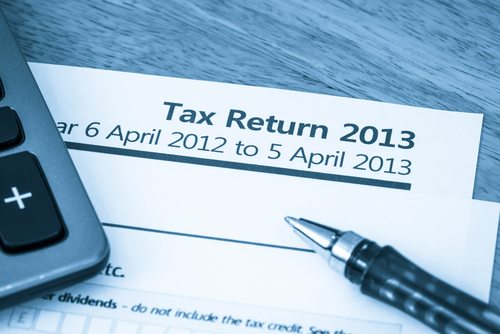Limited companies must pay their Corporation Tax within nine months of the end of their tax year – which for many firms is the end of March. So for these businesses, the deadline is fast approaching.
Your accountant should have told you how much you owe, which should be around 20% of profits if annual profits were less than £300,000. Profits are defined as all sales (less VAT) minus all business related costs (less VAT) in the accounting year.
You will have known when it will fall due – and what it will cost – for months. Hopefully you’ll have set aside a sensible amount of cash each month to be able to pay it in full without causing too many problems.
However, if you haven’t been putting money aside in previous months or have had to use these savings to cover a shortfall, you must act now to as damage limitation.
The most important thing to do if you know you will not be able to cover your bill in full is to tell HMRC before the deadline. If you approach the Revenue early and ask for a “time to pay arrangement”, it is much more likely to be accommodating.
Self-assessment
Unfortunately, this is not the only looming tax deadline for all SME owners, as the January 31st is the date by which company owners, shareholders or directors must complete their self-assessment income tax return.
If you opted to complete your tax return online, as opposed to the paper form which was due on the 31stOctober, you will have a lengthy online form to complete by the end of the month. It will calculate the income from the business, which is salary, dividends and any additional income received for the period to the previous 5th April.
The beauty of completing the form online is that the HMRC website will give you an instant calculation of what you owe. However, this figure shouldn’t come as a complete surprise as although it is best to have an accountant calculate the accurate amount, you can do a very rough calculation yourself.
If you’re a company owner who receives some of your income as salary, that income must be included on the self-assessment form (from your P60) but will not result in any more tax to pay – as you should already have been taxed on it through PAYE.
However, the income you receive in the form of dividends, together with any interest on savings or rent you receive from property you own may result in tax to pay.
For the tax year ending in April 2013, if you earn less than £100,000 per year, the first £8,105 of your total income (including salary) is tax-free. For salary, interest or rental income, the next £34,370 is taxed at the basic rate of 20%, with any additional income (up to £150,000) taxed at the higher rate of 40%.
Top Tips
– Expenses – working out which expenses are eligible can be tricky. It is best to take advice from your account as this could save you a considerable amount on your tax bill
– Estimate in advance – this will give you a much better idea of what you are likely to pay on you income tax bill and should prevent any nasty surprises
– Plan ahead – for both bills, planning throughout the year can make a world of difference
– Financial management – maintaining good, up-to-date records is vital and you should aim to make it a habit and not a chore. It will be highly beneficial to you in the long run
– Understand your strengths – if you struggle with numbers it is wise to hire an accountant to give you a regular financial picture of the business and what your tax liability is
John Hoskin is director of the low cost online accountants for SMEs, CleverAccounts.com


